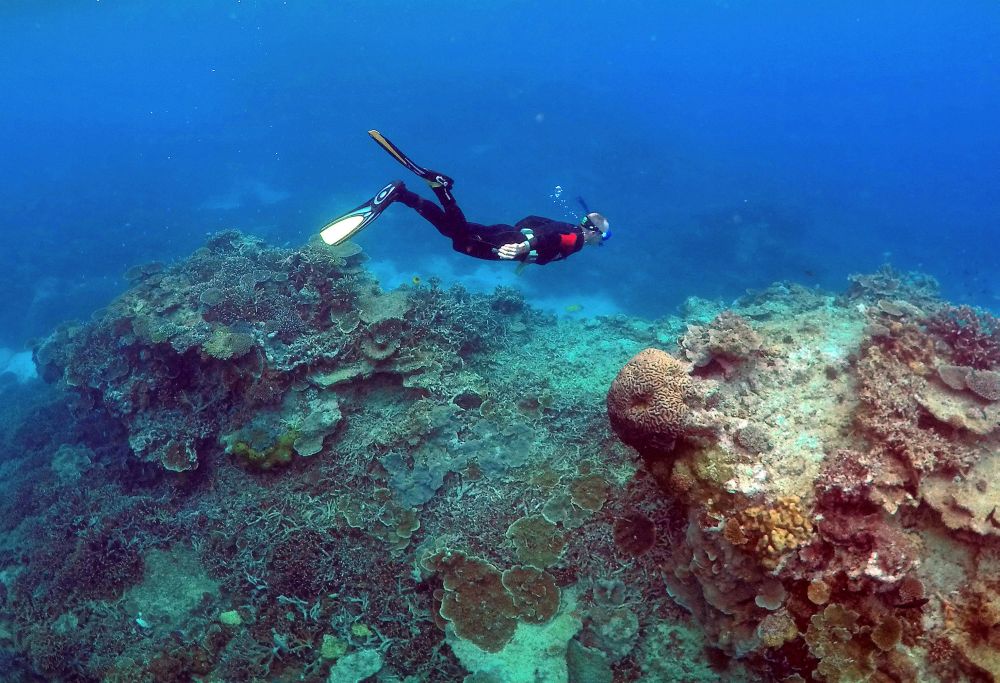Great Barrier Reef outlook downgraded to 'very poor'

A man snorkels in an area called the "Coral Gardens" near Lady Elliot Island, on the Great Barrier Reef, northeast of Bundaberg town in Queensland, Australia, June 11, 2015. REUTERS/David Gray/Files
Canberra, August 30 (IANS) The health outlook for Australia's Great Barrier Reef, the world's largest coral system stretching 2,300 km, has been downgraded to "very poor", according to the long-term projection report published on Friday.
"The challenge to restore reef resilience is big, but not insurmountable," Great Barrier Reef Marine Park Authority (GBRMPA) said in its Outlook Report published every five years.
"Without additional local, national and global action on the greatest threats, the overall outlook for the Great Barrier Reef's ecosystem will remain very poor, with continuing consequences for its heritage values also," it added.
The Great Barrier Reef has faced constant threats from mass bleaching, cyclones, crown-of-thorns (a species of starfish) and pollution from agricultural sediments, among other factors, Efe news reported.
"The accumulation of impacts, through time and over an increasing area, is reducing its ability to recover from disturbances, with implications for reef-dependent communities and industries," said GBRMPA chair Ian Poiner.
The report, which downgraded the long-term health of the reef from "poor" to "very poor", underlined the urgency of initiatives that stop and reverse the effects of climate change globally and to improve water quality at a regional level.
"Concern for the condition of the region's species is also high; many species and species groups are assessed as being in poor to very poor condition," said the report.
"This is an outlook we can change and are committed to changing," Environment Minister Sussan Ley said in a statement.
Ley said the report underlines the importance of an investment of A$1.2 billion ($805 million) in the reef as part of a recovery plan for the ecosystem by 2050.
On the other hand, World Wildlife Fund-Australia's Head of Oceans, Richard Leck, said that "global warming is the primary reason the reef's outlook was downgraded".
"The Reef 2050 Plan is required to be revamped next year and must take climate change seriously and regulations to reduce farm runoff," he said.






